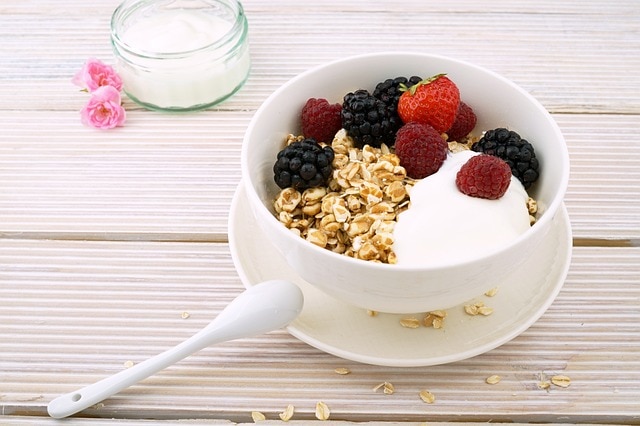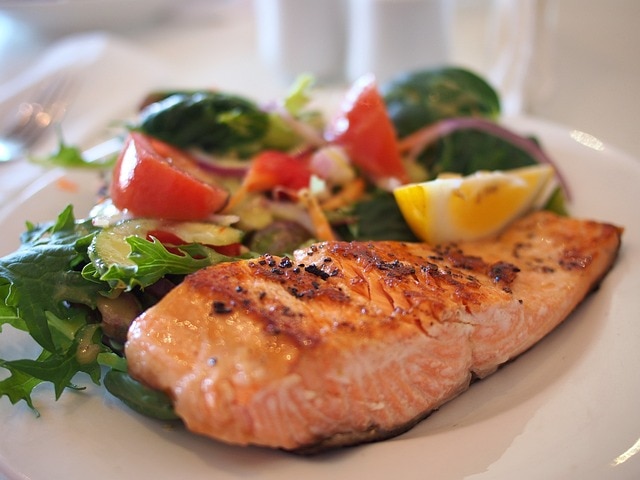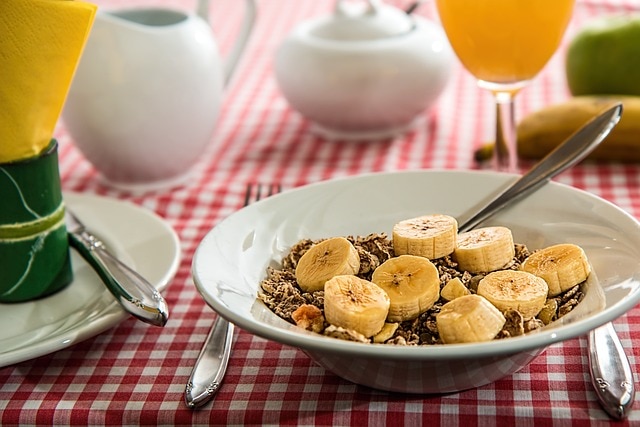Eating After a Run: Our Guide to Marathon Eating
Eating After a Run: Our Guide to Marathon Eating
We all know how important running and marathon training is leading up to race day. However, your health and hydration also play a big role in your performance. Saving those precious minutes can make all the difference. But don’t stress! We’ve listed the best foods to eat before, during and after a marathon, so you stay prepared. Read on!
Best foods to eat before a run
To prepare your body for the big run ahead, you need some food fuel. This includes regular meals with specific ingredients and a pre-run snack. We’ve got the details on the best foods to eat before a run below.
Pre-run meal ideas
You should have your pre-meal run around 3-4 hours in advance for a distance run, like a marathon. This fuelling meal should be high in carbs with some protein. Nutrients (like fat and fibre) that slow down digestion should be a very small part of this meal. The aim of this meal is to maintain good blood sugar levels, which help your muscles during your run. Here are the best foods to eat before a run:
- A bagel or slice of bread with peanut butter
- Oats
- Granola
- Homemade smoothies
- Fruit juice without bits
- Fruits without skin
- Wholegrain toast with eggs (boiled or poached)

Pre-run snack ideas
Your pre-run snack should be eaten 30-60 minutes before a marathon. The snack should be high in carbs and low in calories (again avoiding fats and fibre). Here are some good foods to eat before a run:
- A piece of fruit without skin (an orange, banana, or grapefruit)
- A handful of crackers
- Fruit juices without bits
- A sports energy bar that’s low in calories
- A small bowl of dry cereal
What to eat in the days before your marathon
So, you know what to eat just before and a few hours prior to your marathon, but what about in the days running up to the big day? You, of course, should also be drinking plenty of water. A few days before your marathon, make sure you’re eating:
- Rice
- Starchy vegetables (tomatoes, olives, courgette)
- Pasta (especially wholewheat)
- Lean meats
What to avoid eating before your marathon
In the days before your run, there are some foods that you should avoid eating. We mentioned that fats and fibres shouldn’t be eaten, so here are some examples:
- Tomatoes
- Mint
- High fibre vegetables (broccoli, beans and berries)
- Sugary drinks
- Spicy foods
- Fried foods
Essentially, avoiding acidic, high fibre and high-in-fat foods is probably the best thing to do.
What should I be eating after run?
The aim of eating after a run is to recover your body, replenish the nutrients you lost, and prevent injury. This meal should be strategic, just as your pre-run and intra-run foods are! They should be high in carbs and contain a good amount of protein. A good amount of salt is also suggested, due to the sodium you lost through sweat. All of this should be consumed along with a good amount of water to prevent dehydration.
We’ve listed the best foods to eat after a run. You can mix and match these key ingredients. Take a look:
- Greek yoghurt
- Granola
- Porridge and oatmeal
- Eggs (with veggies)
- Salmon
- Sardines
- Whole grains (brown rice, barley and quinoa)
- Wholewheat pastas
- Nuts (cashews, pistachios, almonds and hazelnuts)
- Bananas
- Nut butters (like almond or peanut butter)
- Broccoli
- Dried fruit
- Sweet potatoes
- Tomatoes
- Chickpeas
Along with eating well, remember to complete recovery runs for replenish your body!

What do I eat during a run?
Note that you’ll only need a mid-run snack if your run lasts longer than 90 minutes. When you’re training for a marathon, it’s also a great time to sample and intra-run snacks. You could try dried fruits (like raisins or apricots), energy bars, sports drinks but we go more in depth about these below.
Whilst you’re marathon training, see which of these feel the best. Try to also notice which of the snacks help to shave time off your run by providing you with the most energy.
Eating during a marathon
Eating during a marathon can really help you to maintain good energy and blood sugar levels. Like we said, every minute counts and a mid-run snack might just be the boost that you need. We’ve listed some of the best snacks and drinks to consume during a run, alongside drinking water, of course!
Sports drinks
Replenishing electrolytes whilst your running is important as you lose them during sweat. Sports drinks are made to help with this, but double-check to ensure they contain electrolytes.
Energy bars
These bars are designed to rebuild and recover your muscles thanks to the protein. The high amount of carbs can also maintain your energy levels.
Energy gels
Energy gels contain concentrated carbohydrates like sugar, along with possible traces of caffeine and electrolytes. These are super easy to carry around as they’re usually single serve and are designed to keep you going at your best.
How to stay hydrated before, during and after a marathon
Drinking water whilst you’re training, in the run up to your marathon, during, and after is very important. Staying hydrated not only improves your running abilities, it’s great for your overall health.
Of course, the nutrition we listed above is very beneficial for running season but water is important all year round. Whilst you are running and training, however, it’s likely that you will need more water than usual. This is to replace the water you lose when you sweat. Find out more on how best to stay hydrated during your workout with our guide.
We hope this article was helpful! Next, check out how to best drink water on your commutes.

Being Brave Enough To Take On A New Challenge
“The man who moves a mountain begins by carrying away small stones” ~ Confucius
Take a look
Eating After a Run: Our Guide to Marathon Eating
Knowing what to eat before, during and after a marathon can be difficult. But don't worry, we've put together a guide on marathon nutrition - take a look!
Take a look
Running in The Rain & Other Weather Conditions: Our Guide
The British weather doesn't need to stop your running schedule. With some adjustments, you can stay on track. See more on running in the rain & more.
Take a look
Marathon Motivation: Running your best London Marathon
Running a marathon is not an easy sport, and staying motivated before race day can be a challenge. Read more about marathon motivation here.
Take a look
How to Perfectly Execute your Long Run: 4 Top Tips
Knowing how to perfectly execute a long run can take some practice. Lucky for you, we have some tips and tricks to help you physically and mentally!
Take a look
How to Avoid and Prevent Injury Whilst You Run
Knowing when and how to prevent an injury whilst running and exercising is important for your training consistency. Find out all you need to know here.
Take a look
How to Add Recovery Runs to Your Routine
Repetitive movements and exercise can have an impact on your body. Recovery runs can help our endurance by making our bodies stronger. Find out how to do this.
Take a look
How Interval Training Improves Your Running Pace
If you’re looking to improve your pace, interval training running can help! Find out how interval training improves your pace with Buxton®.
Take a look
Calculate Your Running Pace
If you’re taking part in a big run or are just trying to increase your pace, you’ll need to calculate running pace. Calculate your running pace now.
Take a look